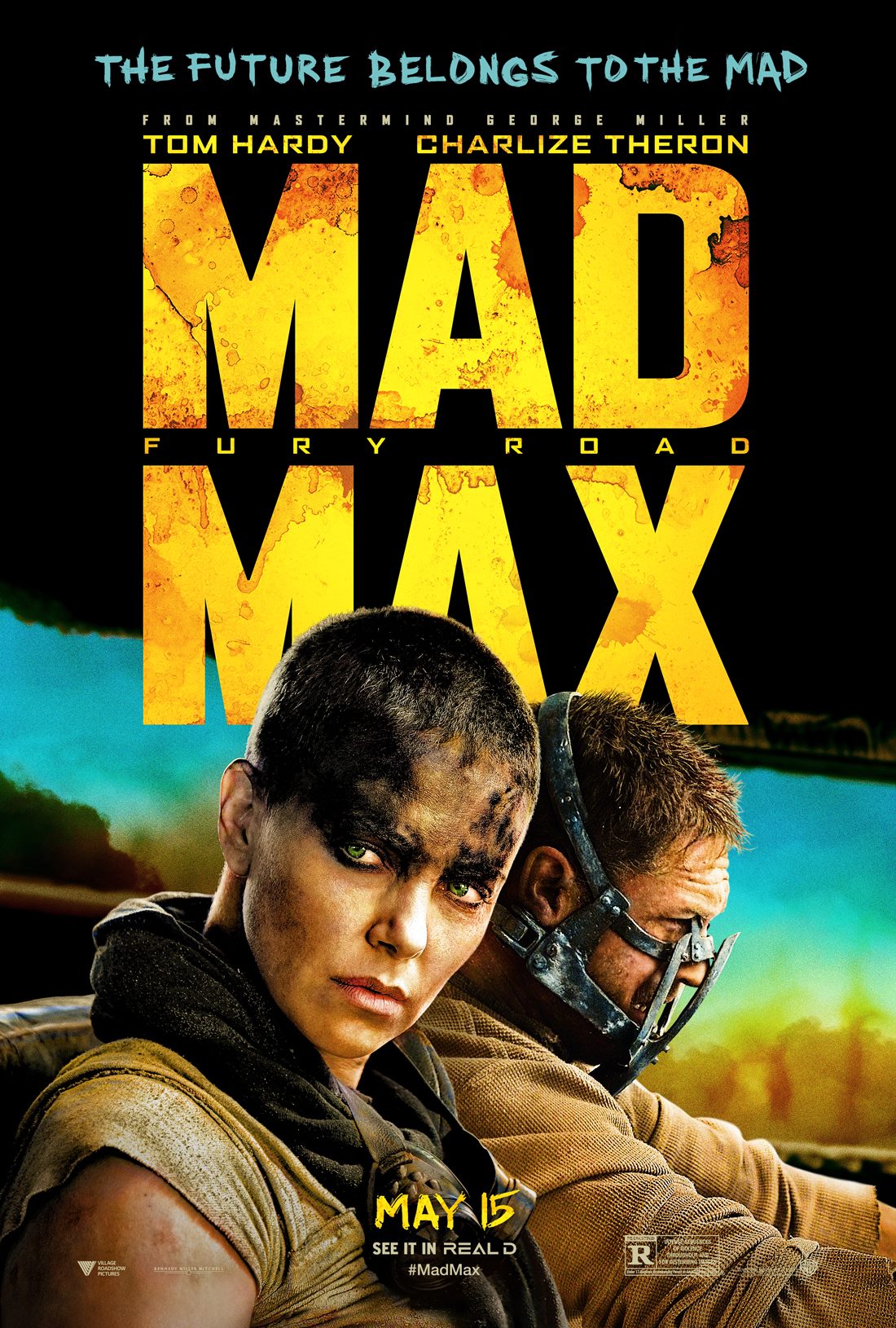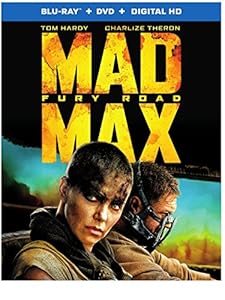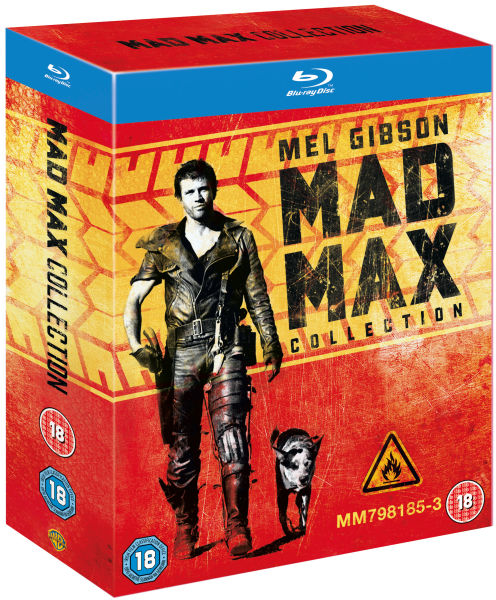
On September 1st, 2015, Mad Max: Fury Road came out on BluR ay/DVD. The only reason I didn’t camp out at Target to get a copy when the doors opened was because I forgot until 9pm that night. And also because I don’t like getting up early.
ay/DVD. The only reason I didn’t camp out at Target to get a copy when the doors opened was because I forgot until 9pm that night. And also because I don’t like getting up early.
As I watched Fury Road yesterday (and again today), it hit me that this movie contains everything that Christian fiction (or fiction written by Christians) should have in it. This applies to all storytelling, actually, but since there’s ongoing debate on whether or not Christian films are any good, I’d like to submit that regardless of where you land in that discussion, we could all learn a few things from Fury Road.
- RUE.Fury Road does a lot of things well, but the first things I noticed when I saw the movie in theaters way back when it came out was that the film Resisted the Urge to Explain (RUE). Instead of explaining every facet of the storyworld and the characters’ history, Fury Road showed it to us.We get a brief introduction to the character of Mad Max Rockatansky (yes, that actually is his last name), but aside from that, we’re basically left to fend for ourselves. Fury Road doesn’t disappoint, either–the story world is shown so beautifully and so vividly that it doesn’t even matter that we don’t know all of the backstory.
 Fans of the Mad Max series may counter me by saying, “But there were three previous Mad Max movies. Those are Max’s backstory.”Actually, not really. Aside from lots of sand, some comparable filming styles, and the idea of killer-awesome vehicles chasing each other, there’s not a lot that’s the same. Tom Hardy’s Mad Max seems to have a past that is haunting him (via creepy flashbacks) that is unique to him and doesn’t cross over with Mel Gibson’s Mad Max, perhaps not even at all.
Fans of the Mad Max series may counter me by saying, “But there were three previous Mad Max movies. Those are Max’s backstory.”Actually, not really. Aside from lots of sand, some comparable filming styles, and the idea of killer-awesome vehicles chasing each other, there’s not a lot that’s the same. Tom Hardy’s Mad Max seems to have a past that is haunting him (via creepy flashbacks) that is unique to him and doesn’t cross over with Mel Gibson’s Mad Max, perhaps not even at all.
The point here is this: it’s great storytelling to take us on a wild ride without info dumping all over us along the way. Let your readers/viewers experience the story world as your characters experience it, show instead of tell, and absolutely RUE until the story ends. Fury Road also includes…
- A plot that not only works but also it thrives because it is driven by character development.Fury Road begins with an exciting inciting incident, and it hardly ever lets up to give us breathing
room. And when it does, it deeply develops its characters and its plot in the process.Take Furiosa (Charlize Theron) for example. Because of who she is, the plot moves forward the only way she knows how to make it move forward. We see her as a strong, hardcore character from the beginning, but by the middle of the movie, we learn that she has a dark past and that she’s looking for redemption, which is why she’s doing what she’s doing.The best part? We can infer all of that about her from two things: her actions up until that point, and her saying that one word: redemption. Her characterization is phenomenal.
Because of who she is, the plot moves forward the only way she knows how to make it move forward. We see her as a strong, hardcore character from the beginning, but by the middle of the movie, we learn that she has a dark past and that she’s looking for redemption, which is why she’s doing what she’s doing.The best part? We can infer all of that about her from two things: her actions up until that point, and her saying that one word: redemption. Her characterization is phenomenal.
 Then there’s Max. At the beginning, in what would count as a prologue, he says that all of his instincts have been reduced to one goal: survive. That one line (combined with all of his actions) builds his character. And then, when he finally decides to help Furiosa, we see him completely change his approach. Does he still want to survive? Of course. Is it his only goal? Not anymore.
Then there’s Max. At the beginning, in what would count as a prologue, he says that all of his instincts have been reduced to one goal: survive. That one line (combined with all of his actions) builds his character. And then, when he finally decides to help Furiosa, we see him completely change his approach. Does he still want to survive? Of course. Is it his only goal? Not anymore.Because Max decides to help and not just go his own way, he serves as the primary reason why Act III even happens. It’s Max who goes to Furiosa and says “we should do this instead of this” (paraphrased to avoid spoilers). She reluctantly agrees, and then they drive straight into the movie’s incredible (and very Mad Max-appropriate) climax.
I could go on and on about Nux, the wives, and even about Immortan Joe (the villain, who is complex and awesome and weird), but it’s better for you to see the movie and assess these things for yourself. The next thing Fury Road has that Christian creatives could learn from is…
- A great message that isn’t conveyed through preaching.At its core, Fury Road is so much more than a fantastic action movie. It, like most great stories, has a theme that is vital to the plot because the characters have different (and thus conflicting) opinions on its veracity. That theme? People are people, not things, not property.Now feminists have interpreted this to mean that women are not things or property, and they’re right. But it’s made clear that this also applies to others throughout the movies as well. Immortan Joe calls his unborn (male) child his “property,” but it’s clear that the other side doesn’t share that view. His wives, who are trying to escape him, insist that they’re not his property, and by extension, neither are his unborn children.
 Immortan Joe is perhaps the best example of a megalomaniac in cinema history (he’s certainly one of the more obvious candidates, anyway). Given his success in that vein, it’s natural for him to view others as property since he rules the known world, more or less.But Furiosa dares to challenge both his claim that he owns his wives and his children and those who serve him. Their conflicting views speak to the theme of the movie clearly.
Immortan Joe is perhaps the best example of a megalomaniac in cinema history (he’s certainly one of the more obvious candidates, anyway). Given his success in that vein, it’s natural for him to view others as property since he rules the known world, more or less.But Furiosa dares to challenge both his claim that he owns his wives and his children and those who serve him. Their conflicting views speak to the theme of the movie clearly.
But unlike so much Christian entertainment, there isn’t a “well, I guess Immortan Joe was wrong” moment at the end of the story, nor was there an “I told you people weren’t property” reminder. Instead the story’s outcome speaks for itself, and it speaks to the theme.
No one is converted at the end (and Nux, who —spoiler alert– changes sides midway through —end spoiler– doesn’t necessarily hold any set view on “people-as-property,” so I don’t think he counts anyway). No one NEEDS to be converted. The story resolves a different way. As a result, nothing in Fury Road feels forced or artificial like so much of Christian fiction (or preachy fiction of any kind) does.
The final key feature that defines Fury Road is that it’s…
- A wild, entertaining ride that leaves you satisfied at the end.Fury Road is easily one of the best movies I’ve ever seen. The lines are clear as to who the good guys are and who the bad guys are. The plot is solid and has a natural ebb and flow. The character development is amazing. The graphics and action and acting and pyrotechnics and dialogue are all marvelous. When all of these elements combine and are done right (as they are in Fury Road), the result is an amazing movie that has huge rewatching potential.

Come on, admit it. This looks incredible.
I found it wildly entertaining, emotionally inspiring, and a LOT of fun. If your fiction, Christian or otherwise, isn’t entertaining, then why bother making it? What other purpose does fiction serve other than to entertain? Here’s how I’d break this down:
If your goal is to tell a great story that conveys a deeper message, then focus on doing things in that order of priority: make the story great, then enhance threads of the message in your revision process.
If your goal is to convey a deeper message by using a story, then again you’ve established a set of priorities: focus on clearly conveying the message, and then use a story to illustrate that message. Just know that if you choose this option that you might be better off writing a sermon or giving a lecture than writing a book or making a movie.
In closing, Mad Max: Fury Road is unquestionably a learning tool for aspiring storytellers, Christian or otherwise. It’s rated R (for good reason) but if you can tolerate the R-rated material, it’s well worth watching for both its entertainment and educational value, plus its great message about the value of a person.
